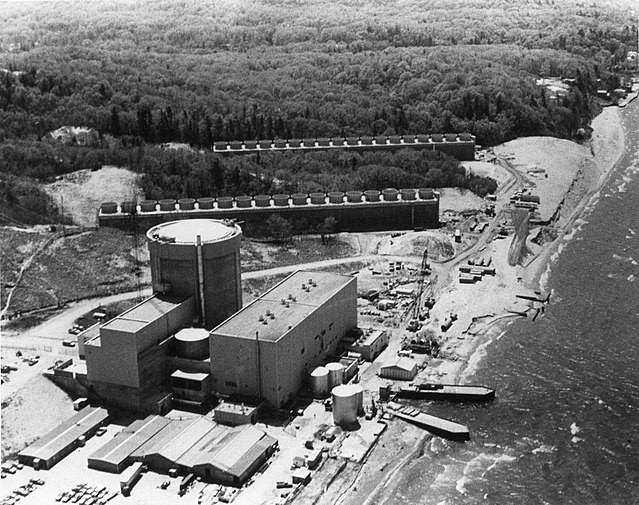The Palisades nuclear plant in Michigan has taken a significant step toward becoming the first nuclear reactor in U.S. history to restart operations after a shutdown. On Monday, the Department of Energy (DOE) announced that Palisades has secured a $1.5 billion federal loan to support the ambitious revival, which is being driven by Holtec International, the plant's owner. This effort represents a milestone for the nuclear energy industry, which has seen numerous plant closures in recent years but is now experiencing renewed interest, particularly as the demand for carbon-free energy sources continues to grow.
Holtec International, a private nuclear technology company based in Jupiter, Florida, aims to restart the Palisades plant by late 2025, pending approval from the U.S. Nuclear Regulatory Commission (NRC). Holtec spokesperson Nick Culp confirmed that "all necessary funding has now been secured" to move forward with inspections, testing, and replacement of key equipment. Holtec has already submitted all major licensing documents to the NRC and expects to receive a response by 2025, setting the stage for the plant's reactivation.
The restart of the Palisades reactor signals a turning point for nuclear power in the United States. The plant, which ceased operations in 2022, faced difficulties competing with the low cost and abundant supply of natural gas. However, with a growing focus on decarbonization and meeting the country's rising electricity demands, nuclear energy is regaining its footing as a critical component of the nation's energy strategy.
David Turk, Deputy Secretary at the Department of Energy, highlighted the importance of nuclear power in the U.S. energy landscape. "We've been using all of the tools in our tool belt to support the nuclear energy sector, keep reactors online, and to bring them back, and to finance advanced reactor deployment as well," Turk stated. He also emphasized that electricity demand is expected to increase by approximately 15% in the coming years, driven by the expansion of data centers and artificial intelligence (AI) infrastructure, making nuclear power an attractive solution to meet this challenge.
As part of the growing trend in the nuclear sector, Palisades joins other high-profile efforts to revive dormant nuclear facilities. Notably, Constellation Energy recently announced plans to bring the Three Mile Island nuclear plant back online by 2028. Three Mile Island, the site of the infamous 1979 nuclear accident, is slated to provide energy to tech giants like Microsoft, which are increasingly relying on massive amounts of electricity to power their AI operations.
Palisades will contribute significantly to Michigan's energy infrastructure, providing enough power for 800,000 homes and supporting 600 jobs in the local Covert Township community. The Wolverine Power Cooperative, a nonprofit organization, has already agreed to purchase the plant's electricity output, ensuring that the energy generated will serve rural communities across the state.
Michigan Governor Gretchen Whitmer praised the move, stating, "Reopening Palisades will keep energy costs low, shore up domestic energy production, and secure Michigan's competitiveness for future economic development." Whitmer's remarks underscore the broader national sentiment that nuclear energy can help stabilize energy prices and meet climate goals by reducing reliance on fossil fuels.
Holtec's long-term plans for Palisades extend beyond the restart. The company has ambitious goals to nearly double the plant's capacity by building new small modular reactors (SMRs) at the site in the 2030s. These smaller, prefabricated reactors are seen as a more cost-effective and scalable option for expanding nuclear power in the future. SMRs are expected to play a critical role in advancing nuclear energy by reducing construction times and simplifying operations, making them an appealing solution for future energy demands.
The $1.5 billion loan for Palisades comes from the Inflation Reduction Act's Energy Infrastructure Reinvestment Program, which seeks to support projects that advance clean energy and modernize the nation's energy grid. With AI and data centers consuming an increasing share of electricity, energy demands are projected to surge dramatically in the coming years. The International Energy Association estimates that data centers will account for a third of new energy demand in the U.S. by 2026, making the role of nuclear power even more critical.






